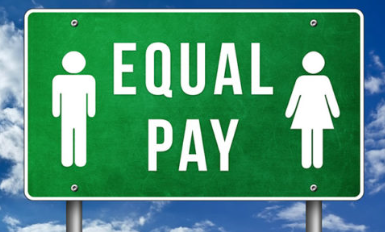Taylor Swift, the gender pay gap and the impact on your people

Autor: Mariann Madden
From her career to her love life, public feuds and songwriting—a lot has been written and discussed about Taylor Swift. However, the perspectives shared by The New York Times staff writer Taffy Brodesser-Akner in The Daily’s podcast episode, “The Year of Taylor Swift,” are rarely broached by the mainstream media.
Brodesser-Akner’s interview delivered an unexpected revelation: Successful women may be seen publicly as having it all, but their professional accolades may be distorted by a dirty little secret. What is the secret casting a shadow over this public perception? Finding out that women aren’t allowed to advance their position and that they are paid less than their male peers.
This is what equal pay and opportunity laws are attempting to prevent. With Equal Pay Day next month, praising Swift’s actions on this topic is timely.
Swift tackles this revelation head-on, using her music as a powerful platform. In her song “My Tears Ricochet,” she laments not being afforded the opportunity to purchase her masters (original sound recordings). Meanwhile, Brodesser-Akner describes her experience discovering she was paid a third less than her male peers, saying she felt “betrayed by the people she thought loved” her and even betrayed by what she thought of herself.
She assumed that her employer would act in “her best interests” and describes how, when she looked back on her work at the time, she felt so lucky to have a career and achieve professional success. However, those memories, her personal sacrifices and her accomplishments are tainted because she realizes she was taken advantage of.
Margret Vilborg Bjarnadottir, Ph.D., co-founder of PayAnalytics, a pay equity software solution, shares a similar personal experience in the Forbes article, “This tech founder hopes to close the pay gap through data.” When she discovered her own gender pay gap, she too had a deeply personal and emotional experience. She was furious and went on to receive a teaching award just days after being told her pay deficit would not be fixed.
There is a perception that the gender pay gap is merely an urban legend—but there are plenty of examples of the government and courts finding evidence of pay discrimination. The reality of the gender pay gap is why laws like the Lilly Ledbetter Fair Pay Act of 2009 and the EU Pay Transparency Directive continue to be proposed and enacted.
So, now that we’re in our transparency era, employee expectations are changing. Employers need to take a step back and consider their pay programs. Employees want to understand their current and potential pay opportunities.
They want to believe they will be afforded the same opportunities to advance their careers. They want to trust that their employers will act in their best interests. And, for employers to provide insight into their pay and talent programs, certain equal pay drivers need to be in place.




